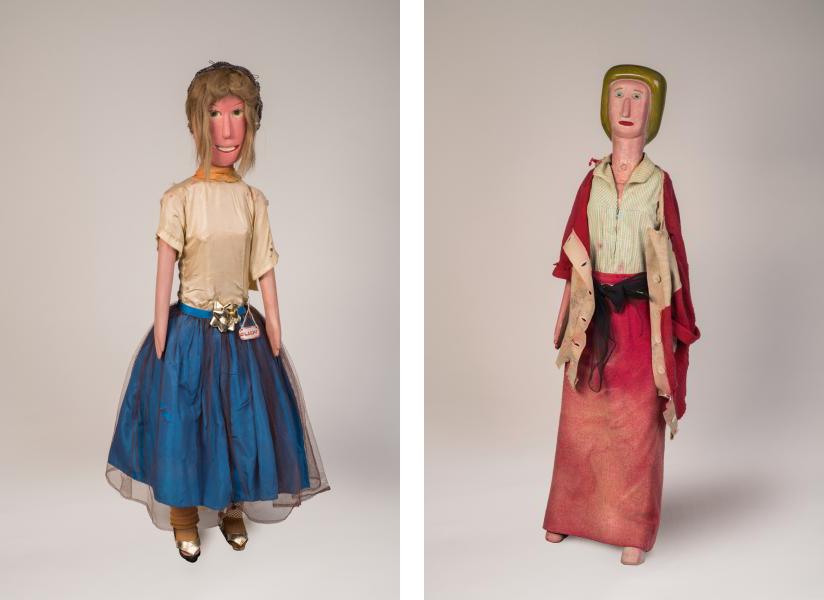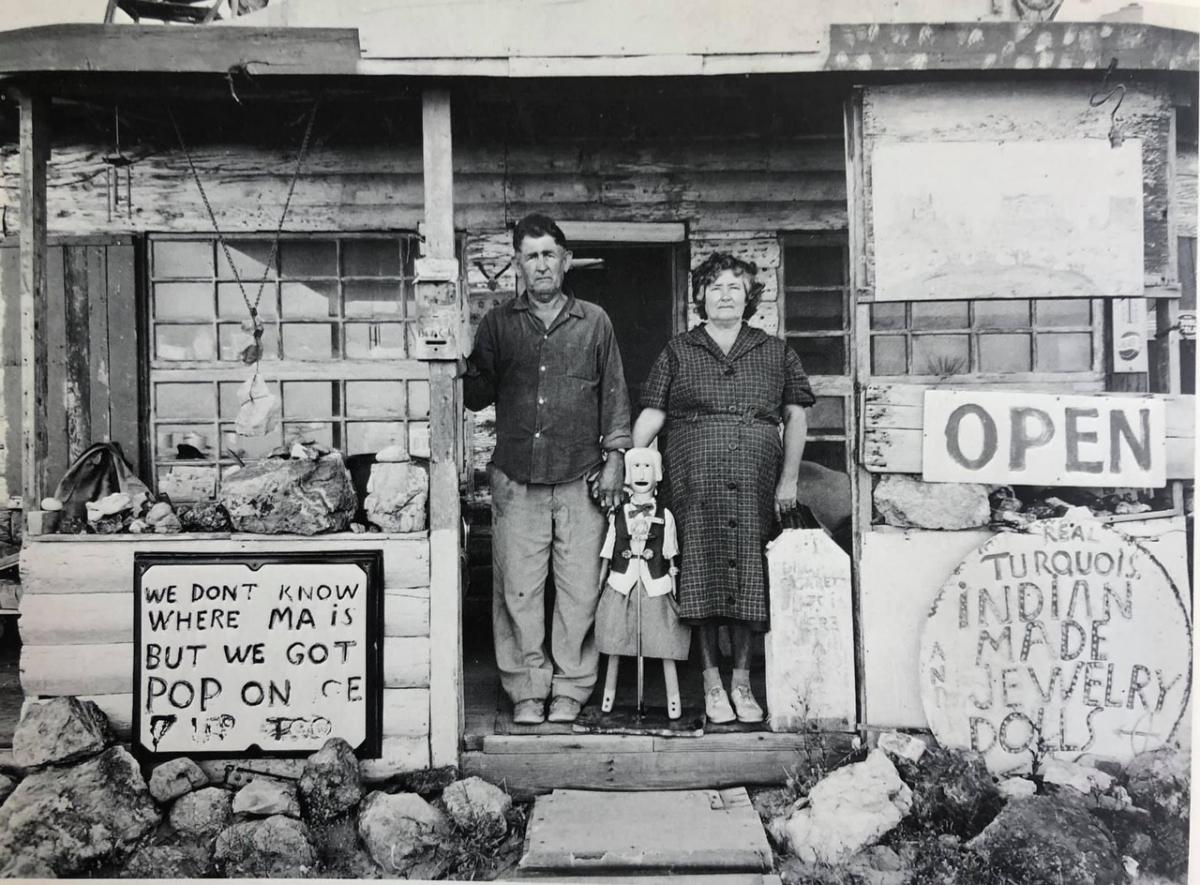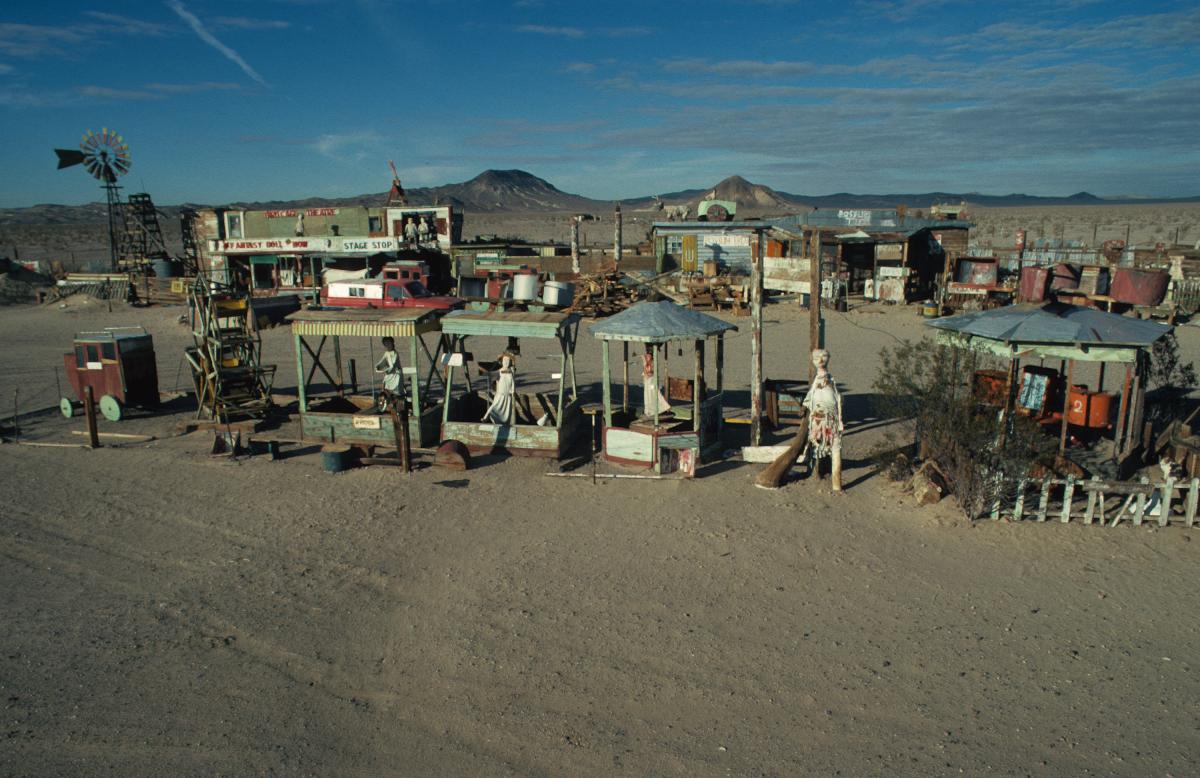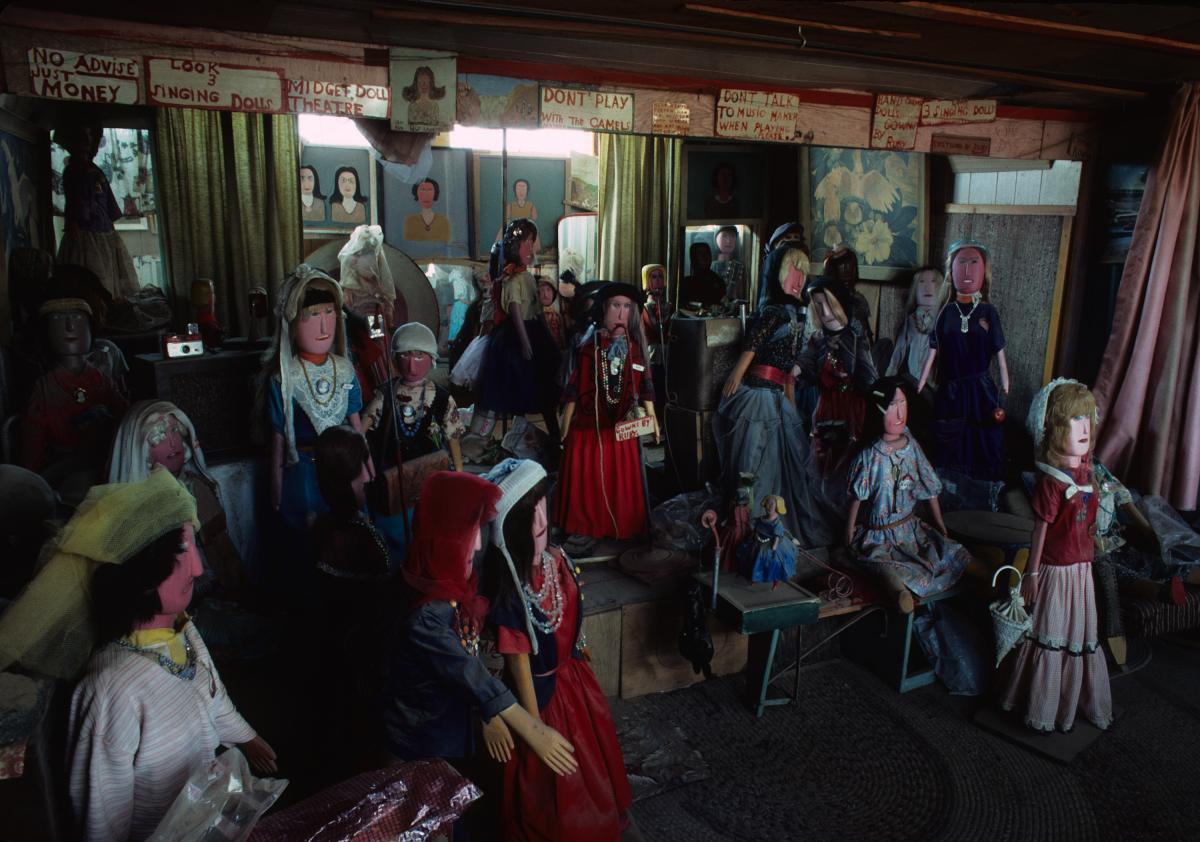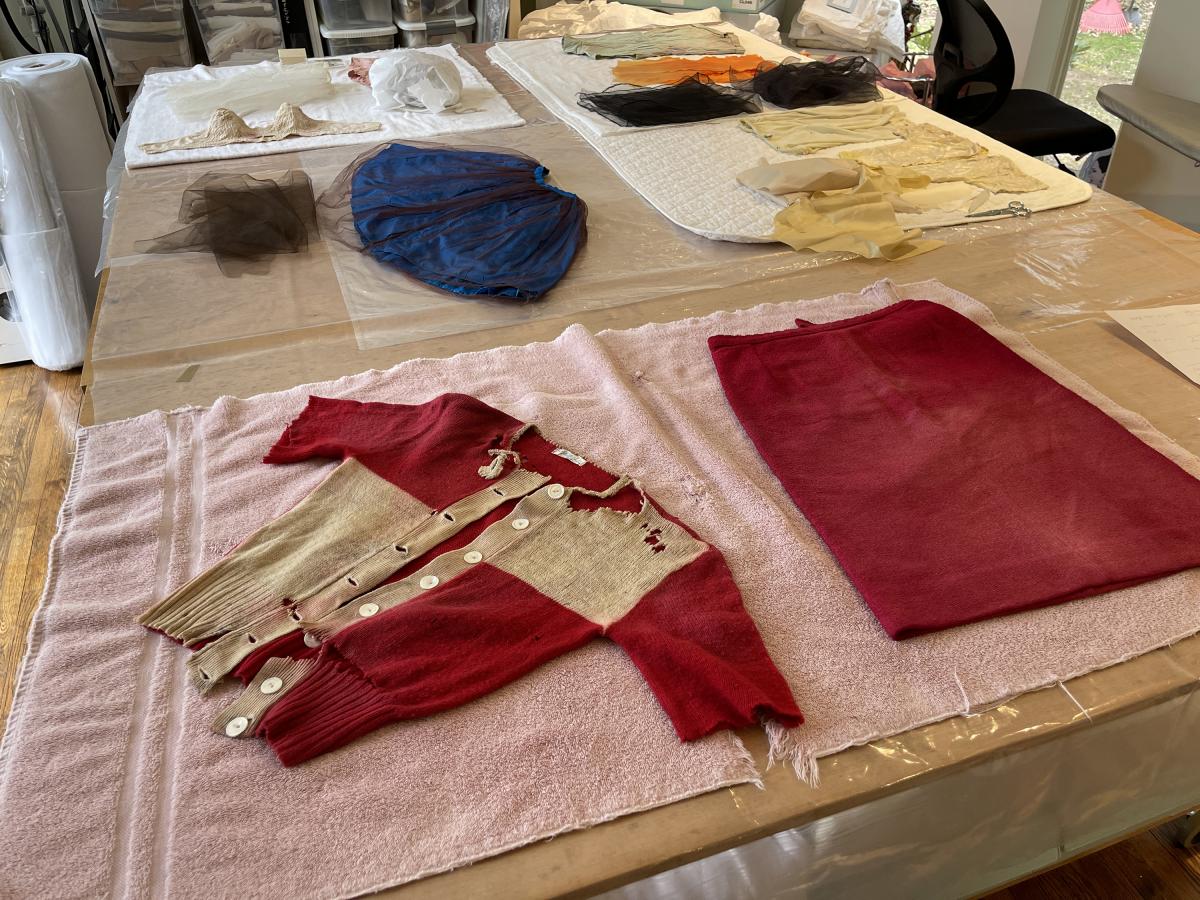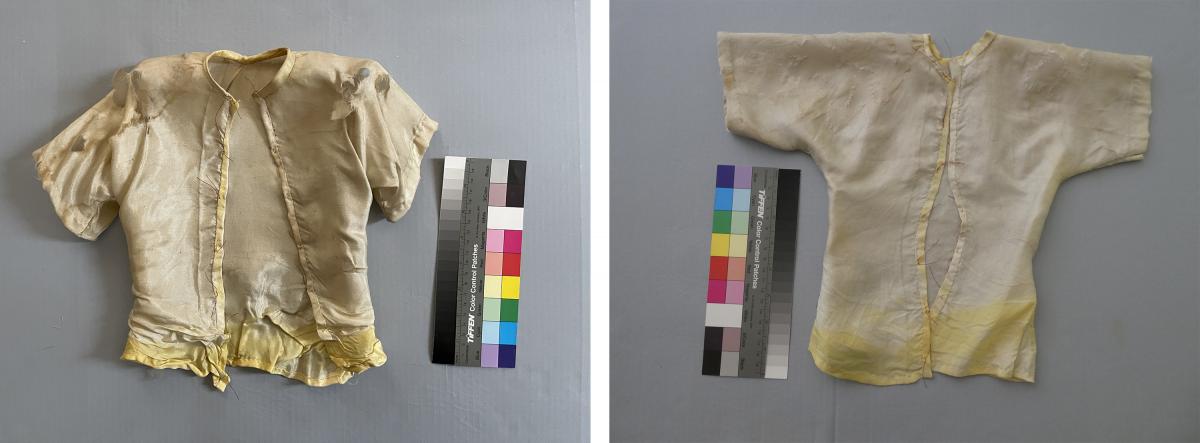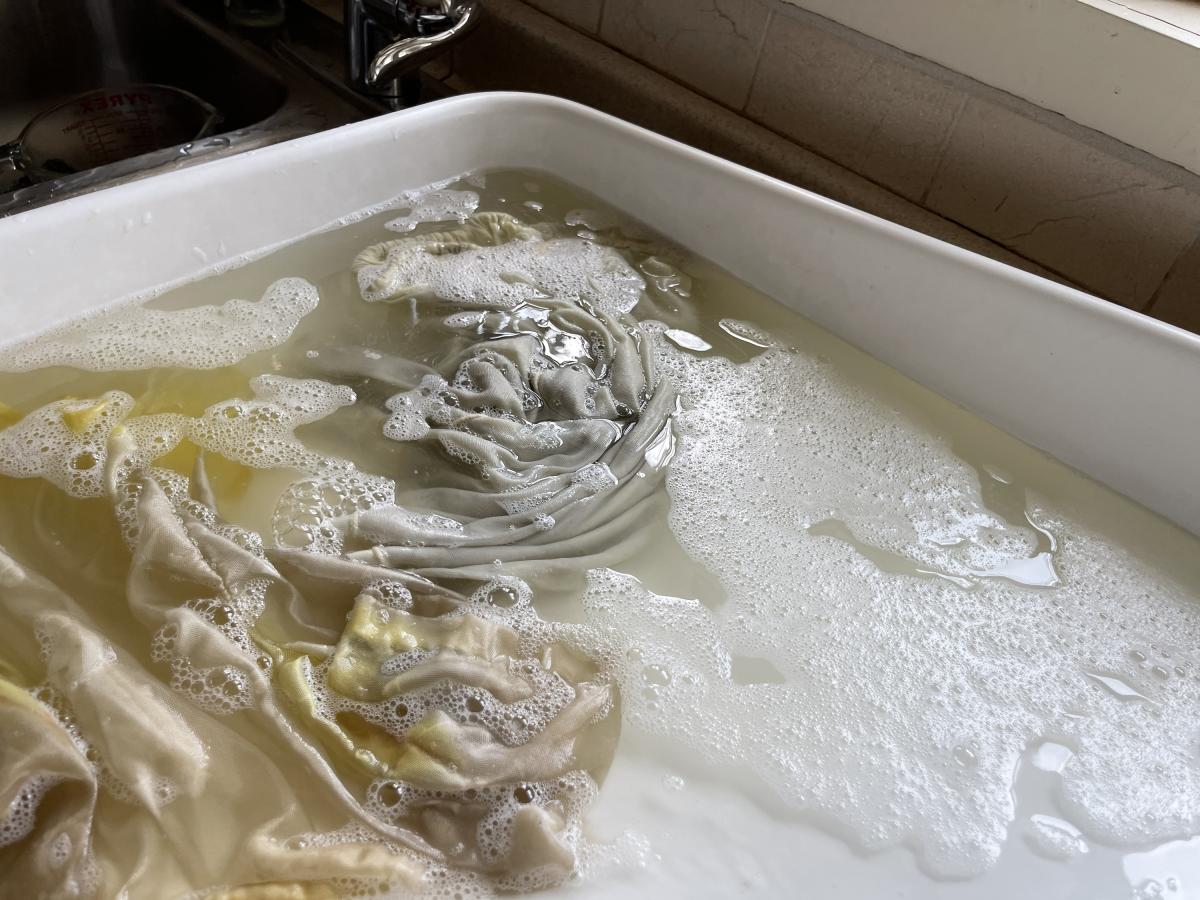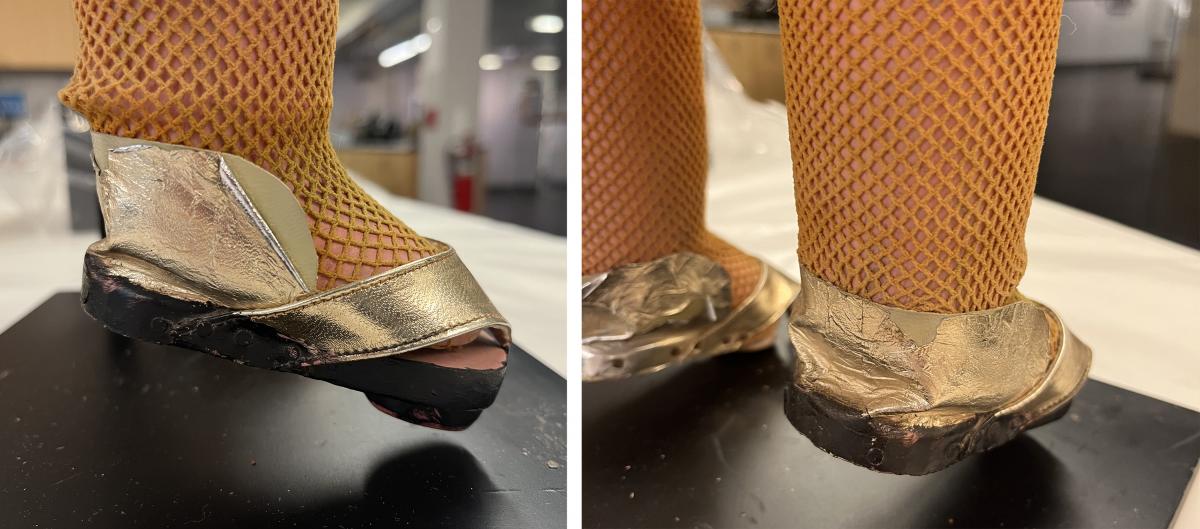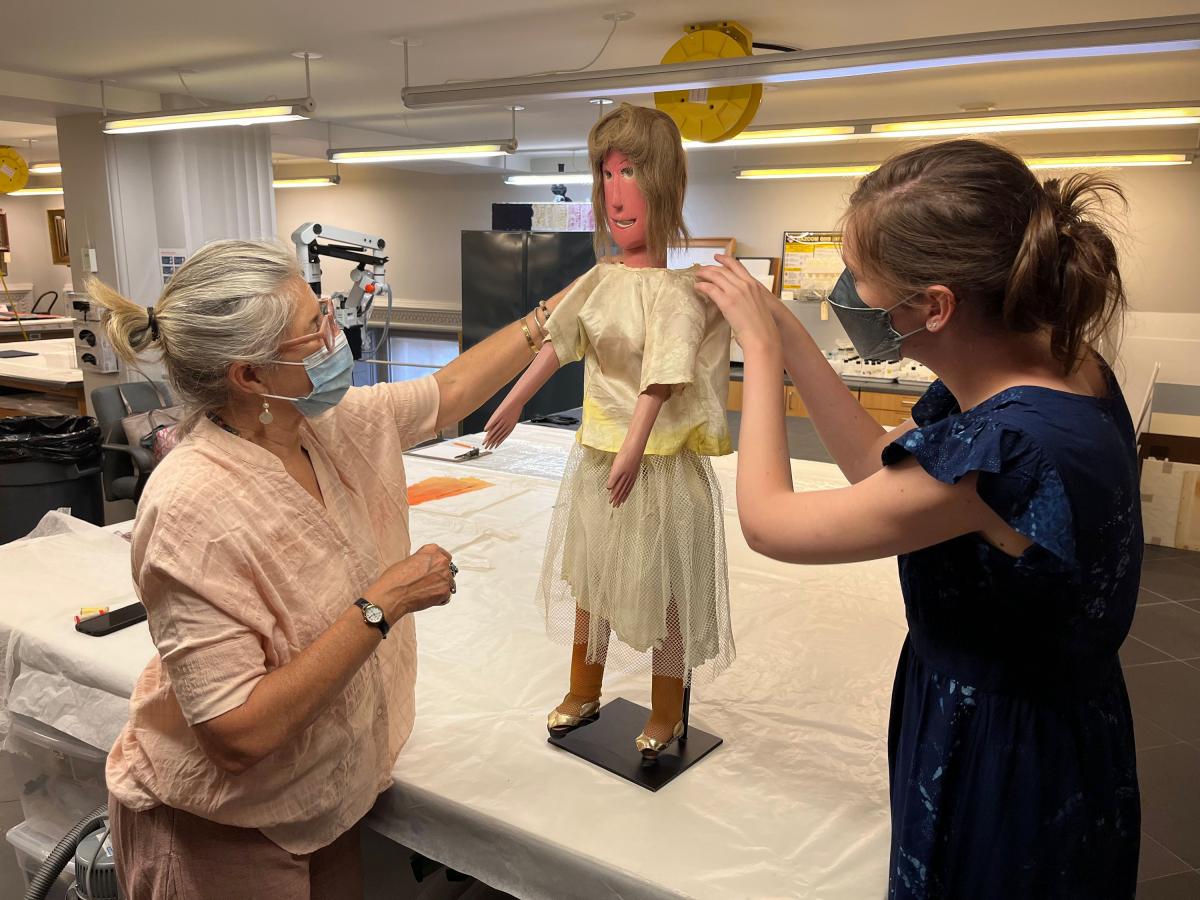Travelers driving through California’s Mojave Desert from the early 1950s through the 1970s may have been lucky to take a break at a unique roadside attraction created and run by Calvin and Ruby Black.
The Blacks opened a small rock shop and refreshment stand along the highway, hoping to attract passersby. To make it even more alluring, they began constructing outbuildings, large whirligigs, tableaux, and other amusements. They called this spot “Possum Trot,” a borrowed term originally referring to a cut-through path an animal might take, but in this case denoting their spot along the road to Calico Ghost Town. They populated “Possum Trot,” indoors and out, with unique artworks: large, handmade dolls that were a husband-and-wife collaboration. This roadside attraction and art environment featured a village of handmade dolls lovingly dressed and accessorized (some even scented) to create a character and identity for each one.
Tasks for this labor of love were divided into two parts: Calvin carved more than 80 wooden dolls while Ruby altered found clothing and other materials to craft garments and accessories. For the dolls’ performances, Calvin recorded them in song, using the eleven different falsetto voices he knew from his earlier days as a performer. After Calvin died, the dolls fell into disrepair, and Ruby passed away, the “Possum Trot” dolls were dispersed to various private collectors and museums. Two of these dolls, one named “Gladys,” and the other—who may once have also had a nametag but today does not—were donated to SAAM in 2016 by Douglas O. Robson.
Before the dolls could be put on view in the 2022 exhibition We Are Made of Stories: Self-Taught Artists in the Robson Family Collection, they required conservation attention. As artworks that had a functional role in the harsh desert climate and endured years of display, some of it outdoors, the dolls were in need of care, to prevent further deterioration.
While the painted, wooden components remained in good condition, the clothes and accessories showed the ravages of time and the elements. The garments were limp, soiled, faded, and scattered with holes. Exhibition curator Leslie Umberger felt that dust and damage should not overshadow the dolls’ charm and personality, but also that the story of their years at Possum Trot should not be erased. To prepare them for display, the garments needed to be washed and repaired.
As an objects conservator, I felt comfortable addressing the conservation needs of the wooden dolls and their accessories, but the garments required specialized knowledge in textiles. So, we called in conservation experts Julia Brennan and Kaitlyn Munro of Caring for Textiles.
The goal of the conservation treatment was not to remove all evidence of use and wear and make the garments look new, but to achieve a balance between stabilization and aesthetic compensation, and to maintain a sense of their history and use. The dolls’ stories could now be the center of attention, instead of their damaged skirts and shirts.
In late 2021, the dolls were carefully undressed, and the garments were transported to Julia’s textile conservation studio. One of the particularly dramatic transformations was Gladys’ bright yellow satin blouse. Over time, it had faded to an off-white cream color with only a band of yellow remaining where the shirt was tucked into her skirt and protected from light. The blouse was stiffened with grime and had a series of holes.
Julia and Kaitlyn carefully removed dirt and grime from the blouse by washing it, with water and a gentle detergent. See photo to see the grimy wash water! While washing sounds like a risky conservation treatment, Julia and Kaitlyn performed numerous tests to ensure each fabric could be safely immersed in water.
After the shirt was clean and dry, Kaitlyn lined the inside of the shirt to strengthen the remaining fabric surrounding the many holes. Upon close examination, the lining fabric is visible through the holes in Gladys’s shirt, but overall, it now appears complete. A general sense of age and wear was preserved, and Kaitlyn’s careful lining means further losses and holes will be prevented.
Julia and Kaitlyn carefully repeated these same steps for all of Gladys’s and the unidentified doll’s garments. It was a long and careful process, as each garment required individual testing and specially dyed support fabrics.
While Julia and Kaitlyn were hard at work on the garments, I assessed the treatment needs of the wooden dolls and their attached accessories. The wooden bodies were in good condition with minor losses in the paint that I chose not to repair because it was important to maintain a balance between the condition of all the components. I knew the garments would appear aged and worn even after conservation, so I chose to maintain the sense of age on the dolls’ painted wooden faces and appendages.
The only accessories in need of care were Gladys’s shiny gold sandals, which Calvin had crafted from found bits of wood and a synthetic leather covered with a gold-colored foil, possibly repurposed from a real pair of women’s shoes. The thin and delicate foil on the sandals had lifted and crumpled over time, leaving the shoe vulnerable to loss. The thong of her left sandal had already popped out of place. After testing the sensitivity of the foil to solvents and adhesives, I gently manipulated it back into position and secured it with a thin layer of dilute adhesive. Using the same adhesive and a new nail, I helped secure the broken thong. While there are still areas on the sandals where foil has been lost, the existing foil is now secure and not at risk. The sandals now appear appropriately aged and consistent with the rest of Gladys’s glamorous ensemble.
After the garments were cleaned and stabilized and the sandals repaired, we came back together in June 2022 at the Lunder Conservation Center, to re-dress the dolls before their big debut. After our conservation treatment, the dolls could be safely displayed without major concerns about their long-term preservation.
Participating in the conservation of the Possum Trot dolls was a delightful and enriching opportunity for me to peek into their life histories and the creative minds of Calvin and Ruby Black. The dolls represent what I enjoy most about caring for the folk and self-taught art collection here at SAAM—they are unique and represent the very personal artistic visions of their creators. During our time with these objects, Julia, Kaitlyn, and I all became very fond of the dolls, as if we knew them personally. Our hope is that Calvin and Ruby Black would be overjoyed to see the dolls that they had cared for as if they were their own children spruced up and back in the spotlight.















